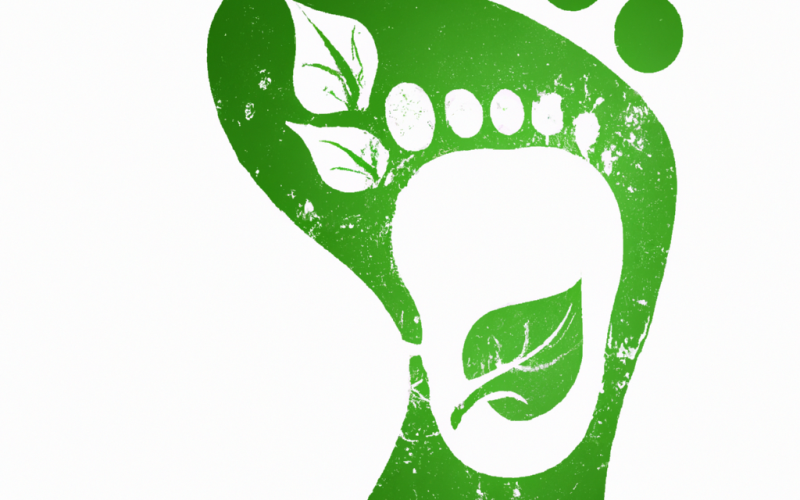Last Updated on May 9, 2023 by Ecologica Life
One of the biggest problems our species is currently facing is climate change. We are on the verge of an environmental catastrophe as a result of 200 years of human activity. However, there are still steps we can take to minimise the damage. One such step is lowering your carbon footprint.
What Is a Carbon Footprint?
A carbon footprint is a measure of the overall amount of greenhouse gases that a person, organization, or country releases into the atmosphere. Typically, it is expressed in tonnes of CO2e (carbon dioxide equivalent).
Greenhouse gases are any type of gas in the atmosphere that prevents heat from escaping. With regard to your carbon footprint, carbon dioxide, nitrous oxide and methane are the most important ones to consider.
You can calculate your carbon footprint at carbonfootprint.com. However, this calculator is very detailed, the WWF have a simpler calculator.
Tips to Reduce Your Carbon Footprint
Switch off the lights: our ancestors did not have artificial lighting. Until the 19th century, civilisation revolved around daylight. Historically, many religions have worshipped the sun as the source of all life.
A small study from 2014 showed that when office workers received more natural light exposure they experienced better sleep. This makes sense because exposure to natural light can directly affect our circadian rhythms. Work with natural light whenever possible. When you do need to use artificial lighting, don’t forget to turn off the lights when you leave a room!
Thermostat control: do you really need the thermostat that high? Consider if you could survive by lowering it slightly and wearing another layer. This will not only reduce your carbon footprint but will save on electricity bills, something that is increasingly important during this year’s energy crisis.
Using your windows to full advantage: there are various health benefits to opening your windows as this can help lower the amount of indoor air pollutants. However, if you open them, make sure to turn your AC or heating off and vice versa to prevent energy waste.
Give your devices a rest: many people like to leave their computers, laptops, and televisions on even when they are not using them. Let your devices rest and save on your carbon footprint and energy bills. A computer uses at least 65% less energy when turned off than when left on idle or screensaver mode.
Take the stairs: if you are able, take the stairs instead of using an elevator. This can remove your carbon footprint and be a health bonus as well. In today’s sedentary life, we could all do with burning a few extra calories.
Take shorter and colder showers: everybody enjoys a nice hot shower. However taking cold showers has been shown to boost mental health & immunity, increase circulation and reduce inflammation. You can start with lukewarm showers and work your way down. If you must take a hot shower, try to limit the time you take in there. The less hot water you use, the less energy is needed to heat the water.
Recycle: this is vastly important. Extraction and production of raw materials produces a lot of pollutants. By recycling we reduce the need for new raw materials, and we are saving the planet and wildlife at the same time!
Donate: donate your used items instead of throwing them away. This can include cell phones, chargers, furniture, clothing, and school supplies.
Exercise: consider walking or riding a bike to your school/work if it is possible. Exercise can improve mental health, help manage weight loss and reduce the risk of diseases like stroke and heart attack.
Switch to renewable energy for your household: greener tariffs are currently being offered by energy providers all around the world. You can lower your household emissions and save money on your energy costs by moving to a company that uses electricity generated by solar, wind, or hydroelectric power. Solar panels are another option that are becoming widely available.
Buy locally: food shipped overseas uses a lot more resources than local produce. Why not support your local farmers’ market?
Fly less: take trains whenever possible, trains produce between 10-20 times emissions than air travel.
Eat less meat, especially red meat: science shows that we eat too much red meat and should cut down for our health, at least to once or twice a week, this will also contribute to lowering your carbon footprint.
Get politically active: finally, and maybe most importantly, vote! The best climate solutions to climate change depend on government action. Become politically involved and tell your local and national elected officials that you want them to act quickly to decarbonize your country and phase out the use of fossil fuels.








